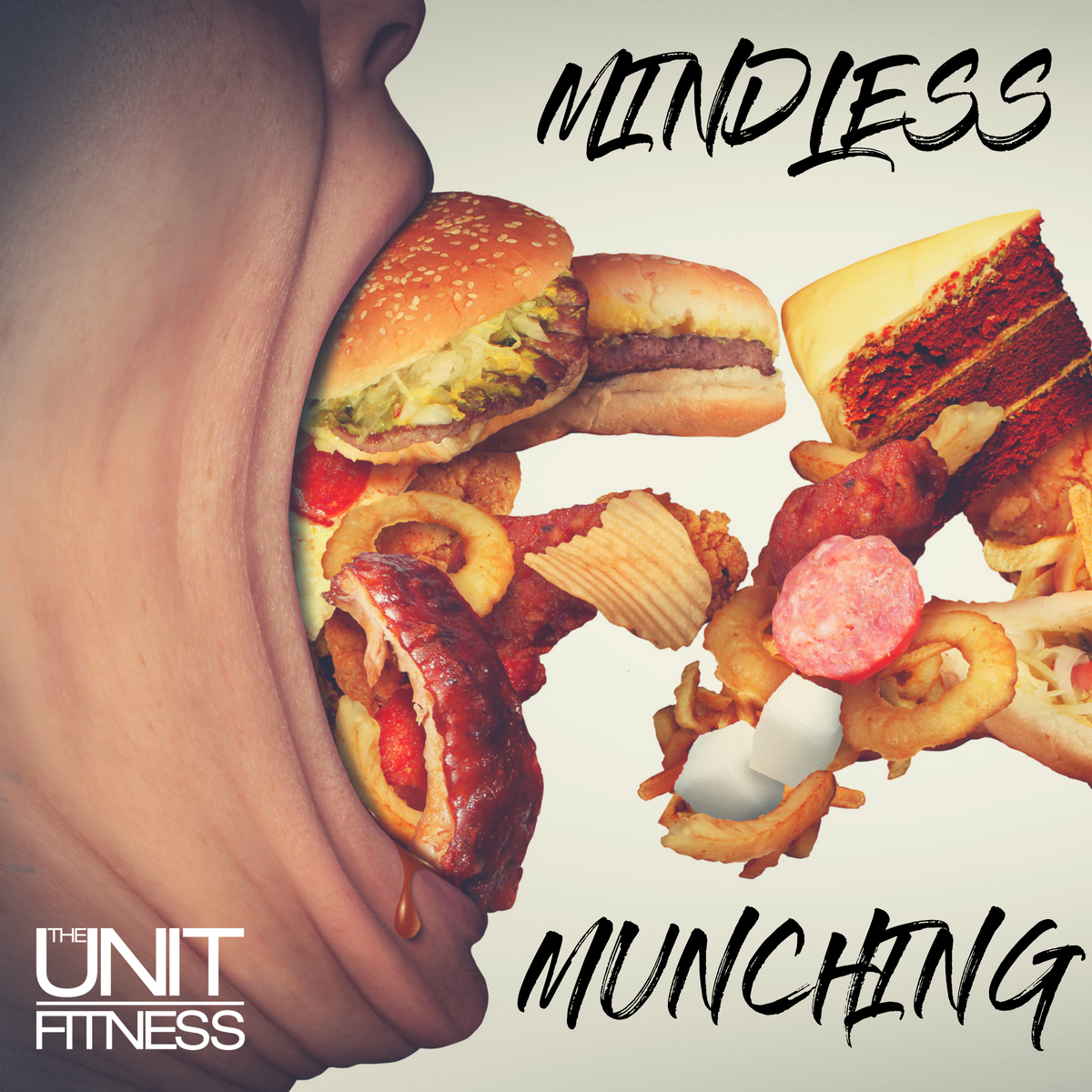Mindless Munching - part of everyday life?
Mindless munching - part of everyday life? But why should it be and what do these bad habits lead to?
We are all guilty of it… the bad habits of grabbing some food and rather than sitting at the table for dinner (like our parents got us to do when we were young) we combine mealtime with other ‘tasks’.
The most common being scrolling your newsfeed or insta roll, catching up on T.V programmes, trying to do some work on a laptop next to you in between mouthfuls, calling people on the phone and even driving!
Doesn’t seem that bad right? I mean, actually it’s a pretty great feeling to be multitasking and GSD.
But, eating habits like these could have an impact on our health later down the line, even if we are eating relatively good foods right now.
Eating (and the time leading up to that event) should be a stress free and relaxed affair.
We should be present in the act of eating and smell, taste and appreciate our food.
I reckon some meals you wolf down and don’t even fully appreciate the flavours because food is just fuel right?
However, mindless eating does seem to happen most in environments we’re comfortable in such as home or work. If we visited an expensive restaurant and the food presented was full of flavour and cost a pretty penny for it, I can bet you’d take a lot longer over the meal to fully enjoy the experience.
So why is fully chewing and digesting your food important for our longterm health?
Sounds silly when it’s read like that ^ ^ right?!? I mean, why would you want to eat things partially chewed?
But again, I for one am guilty of demolishing a tasty meal in double quick time and getting the occasional, hard to swallow, food lump in the throat that needs to be washed down because I was too eager to get it finished and took in a combination of too big a fork full and didn’t chew it properly!
If we look at the digestive process, even before food enters the mouth there are enzymes released to begin the process of breaking the food down so our digestive tract can deal with it better. Once in the mouth again, enzymes help to break down the macronutrients and extract nutrition from our food.
If we have to ‘wash our food down’ then we could also be potentially interrupting the digestive process, diluting stomach acids and causing more bloating with liquid volume going in.
After mealtime it is also a good idea to move around a little to help the digestive process continue to work for you. For me it can sometimes be a post Sunday roast walk that does the trick due to more time on a weekend to do so, but more often than not it’s back to sitting down to help ease that full feeling (when actually a walk would be 10x more effective).
So, back to looking at mealtimes as a stressful rather than stress free event, what we’re doing by rushing our meals, not chewing properly and being distracted away from our food is causing the body to work harder to deal with that meal, and drawing on more resources within the body to help.
If our intestines receive any food that is larger than normal, more enzymes and bile are needed to be released to deal with this causing our gallbladder and pancreas to work harder than they should.
Plus, the biggest impact on rushing meals is the lack of satisfaction and nourishment! If we feel less satisfied after food it will likely lead to more snacking and overeating later in the day.
So how can we go from mindless eating to mindful eating practices??
Here are a few pointers:
1. The most simple on is to sit down during mealtimes. We are more relaxed sitting than standing which helps to put us in a parasympathetic state. As well as taking the time to smell and breathe in the aromas of your food, which also helps to switch states.
2. At first try to count your chews aiming for around 15 to 20 per mouthful. Eventually you’ll get into a habit and just chew food for longer every time but just like all habits, this will take time to work on.
3. As mentioned above, avoid drinking liquids whilst eating. If we try to ‘help our food down’ with water or other beverages it can play havoc with the digestive process and we are more likely to put more food in and chew less because it’s easier to swallow.
4. Getting into the habit of putting the fork down between mouthfuls is also a good practice to ensure more time is taken to appreciate the food we’re eating.
5. If we eat with someone else we tend to chat and take more time over our meals. Generally we’ll chew longer and take longer pauses between mouthfuls if conversing with a friend at mealtimes.
6. Go for a walk after meals to help assimilate the nutrients from food better and help to control blood sugar level spikes from feeding.
The health and fitness industry are always big on focusing on the type of food we eat but the way we eat is also a hugely overlooked element of good nutrition and can impact health and performance in a bigger way than you think.
Rushed meals, eaten in stressful environments or uncomfortable situations take away from the event of eating and cause our bodies to work harder during the digestive process for no reason.
It shouldn’t be too hard to just relax a little more when eating meals, chew for longer and take smaller bites.
If we can get into good habits around mealtimes and promote mindful eating practices it will only lead to a a better physique, sound health and also better performance on a daily basis.
Rob




